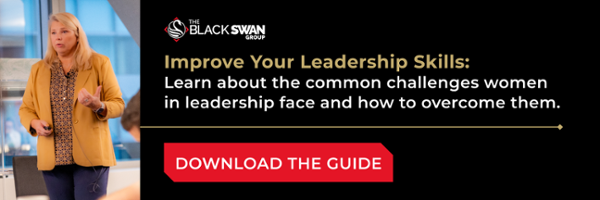“I always thought women made better negotiators than men.”
This was Tom Strentz’s response when I shared with him my experience teaching my class in the M.B.A. program at Georgetown University’s McDonough School of Business. Women (who comprise a minority of the students in my classes) typically are the first to demonstrate negotiation breakthroughs using the adapted hostage negotiation skills I teach.
Tom is the father of the FBI’s hostage negotiation program and the author of two books on hostage negotiation (both of which belong in every hostage negotiator’s library): Hostage/Crisis Negotiations: Lessons Learned from the Bad, the Mad, and the Sad and Psychological Aspects of Crisis Negotiation. I knew Tom’s perspective would be valuable. Tom is one of the truly good guys. Though he has a reputation as an incorrigible flirt, the reality is that he just loves people. He is also an institutional asset to the entire field of crisis/hostage negotiation and I am fortunate that he talks to me at all. When we talk about seeing farther because we have stood on the shoulders of giants, Tom is one of those giants. All of us who have ever been hostage negotiators have been boosted by Tom.
In my last seven (7) years with the FBI, as a Supervisory Special Agent in the FBI’s Crisis Negotiation Unit (CNU) I had the opportunity to train several hundred FBI Agents, both male and female, as Crisis Negotiators. (The FBI uses the term Crisis Negotiator as opposed to Hostage Negotiator, as does many other law enforcement agencies. These terms are essentially interchangeable.) During that time I personally refused to recognize any distinction in the abilities ascribed to either gender. If a person didn’t use the skills and work at getting better it didn’t matter what their gender was, they couldn’t do the job.
At the same time, many of us came to learn that under certain types of crises, if there had been a man on the phone as a negotiator who had been doing a poor job, and you put a woman on the phone who was really good, the situation would be over so quickly it could make your head spin. The last caveat was that the barricaded subject (or hostage taker) had to be a man who had a history of unsuccessful relationships with women. The fact remained that the woman negotiator couldn’t succeed unless she was talented in the first place.
One of the best examples of this exact type of negotiator was Gloria Newport (now retired). Gloria was/is a phenomenal negotiator. She was once asked to step into an extremely deadly situation (one homicide had already occurred) and Gloria (supported by a good negotiation team) turned it around and negotiated a surrender. Gloria did a fantastic job in a number of other negotiations as well. The bottom line with Gloria, though she is a woman, she is talented and her successes can’t be attributed solely to her gender.
I love watching Lori Grenier on Shark Tank. I think she is the best negotiator in that group. I think anyone who wants to learn how to finesse difficult situations should watch her. I think the key to her being able to push through tough, competitive negotiations is her ability to both downward inflect and smile at the same time when she speaks. I loved watching her turn to one of the male sharks on that show, smile and say “Just sit back and watch me make money” when he was interrupting her and attacking what she was saying. He shut up and she made her deal. She uses exactly the same approach when she makes offers, or gives reasons why she won’t make offers, to the entrepreneurs in the “Shark Tank”.
I think one of the critical attributes to becoming a better negotiator is a trait called “Open-ness”. (Please note I said “one”.) This trait can be measured by a psychological instrument called the NEO Five Factor Inventory. I don’t think this trait is exclusive to either men or women and I don’t have any data as to whether either gender has a greater tendency towards it.
I do think that the nature of your circumstances can cause this to be brought out in you. I think that the nature of the challenges women face in the business world are sufficiently different then what men face as to cause women to be required to be generally more open to finding new paths to success. I think that’s the nature of the challenge faced by any minority group.
I also think that since success by definition is an abnormality, this challenge of finding new paths to success is something we all face if we hunger to excel.


